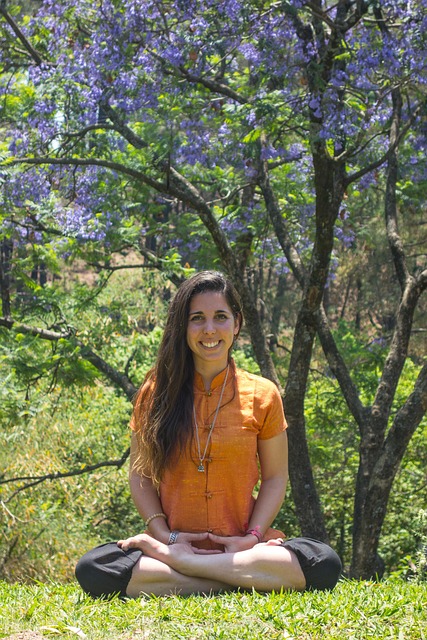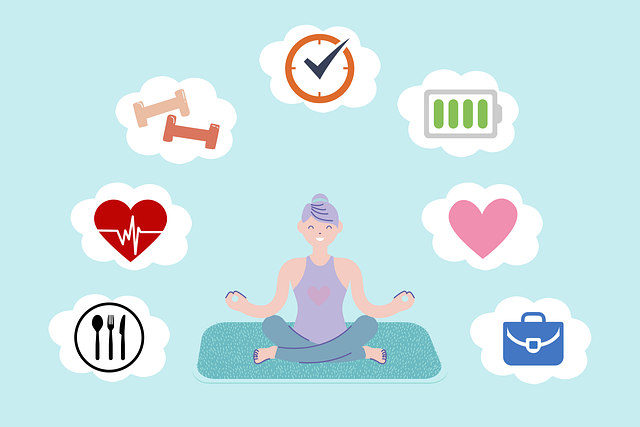Effective Superior Family Counseling Therapy (SFCT) relies on mastering group dynamics through understanding individual personalities and creating an inclusive environment where everyone feels heard and valued. Techniques like Self-Awareness Exercises and Social Skills Training enhance inter-personal understanding, empathy, and conflict resolution. Facilitators must be attuned to the group's energy, maintaining a balanced atmosphere for maximum therapeutic benefits. Creating safe spaces with clear boundaries, confidentiality, active listening, and non-judgmental attitudes is crucial. Incorporating self-care routines like mindfulness and stress management develops valuable coping tools, demonstrated through personal engagement in SFCT principles. Engaging environments with open-ended questions and role-playing scenarios foster community and emotional regulation skills. SFCT uses qualitative and quantitative methods to assess progress, informed by pre/post evaluations and regular check-ins, tracking individual and collective improvements.
Mental wellness group facilitation is an art that empowers individuals through community. This article explores proven techniques for superior family counseling therapy, focusing on understanding intricate group dynamics to foster effective support. We’ll uncover strategies to create safe spaces, encourage active participation, and enhance interactions. By delving into measurement tools, we aim to promote positive outcomes, showcasing the transformative power of group facilitation in mental wellness journeys.
- Understanding Group Dynamics for Effective Facilitation
- Strategies for Creating a Safe and Supportive Environment
- Techniques to Enhance Engagement and Interaction
- Measuring and Promoting Positive Outcomes in Group Settings
Understanding Group Dynamics for Effective Facilitation

Effective group facilitation requires a deep understanding of group dynamics, where the interactions, behaviors, and relationships among participants play a pivotal role in creating a safe, supportive, and engaging environment. In a mental wellness context, facilitators must be adept at navigating diverse personalities, ensuring every individual feels heard and valued. This involves cultivating an inclusive atmosphere that encourages active participation and fosters meaningful connections.
By employing techniques such as Self-Awareness Exercises, group members can develop insights into their own emotions, triggers, and communication styles, which, in turn, enhances inter-personal understanding and empathy. Social Skills Training can also be integrated to promote healthy interactions, resolve conflicts, and build a sense of community within the group. Moreover, facilitators should remain attuned to the collective energy of the group, adjusting their approach accordingly to maintain a balanced and productive setting, ultimately enhancing the therapeutic benefits of Superior Family Counseling Therapy sessions.
Strategies for Creating a Safe and Supportive Environment

Creating a safe and supportive environment is paramount when facilitating mental wellness groups, as it fosters trust and encourages open communication among members. As a group facilitator, establishing clear boundaries and ground rules at the outset is essential. This involves ensuring confidentiality, promoting active listening, and creating a non-judgmental space where everyone feels heard and respected. Utilizing techniques like reflective listening can help individuals feel validated and understood, fostering a sense of safety.
Incorporating self-care routine development for better mental health as part of the group dynamic is another effective strategy. Encouraging members to share their personal coping mechanisms and strategies can lead to a diverse toolkit of resources. These may include mindfulness exercises, stress management techniques, or healthy habit integration, all of which contribute to enhanced trauma support services within the group setting. A facilitator should model these practices, demonstrating Superior Family Counseling Therapy principles through personal engagement and active participation in self-care initiatives.
Techniques to Enhance Engagement and Interaction

In facilitating mental wellness groups, creating an engaging and interactive environment is key to success. One effective technique is using open-ended questions that encourage participants to share their experiences and perspectives. This not only fosters a sense of community but also aids in building emotional regulation skills, as individuals learn to express and understand their feelings. Additionally, incorporating activities that promote active listening and empathy can significantly enhance group dynamics. For instance, role-playing scenarios can help members practice responding to each other’s challenges, fostering a supportive atmosphere that encourages open communication.
At Superior Family Counseling Therapy, we recognize the power of these engagement strategies in providing trauma support services. By actively involving every participant, we create a safe space where anxiety relief becomes achievable through shared understanding and coping mechanisms. Through tailored interactions, our facilitators ensure that each member feels valued, contributing to a holistic approach to emotional well-being.
Measuring and Promoting Positive Outcomes in Group Settings

In group settings facilitated by Superior Family Counseling Therapy, measuring positive outcomes is a multifaceted process. Facilitators employ various qualitative and quantitative methods to assess participants’ emotional well-being, social skills, and overall satisfaction. Regular pre- and post-session evaluations, along with ongoing check-ins, allow for tracking individual and collective progress. This data provides valuable insights into the effectiveness of the group dynamics and helps identify areas for improvement.
Promoting positive outcomes involves fostering an inclusive environment that encourages open communication and emotional expression. Techniques such as active listening, empathy building, and resilience-focused activities contribute to enhanced emotional intelligence within the group. The successful implementation of a Community Outreach Program further reinforces these benefits by extending support to broader communities, thereby enhancing overall mental wellness.
Group facilitation plays a pivotal role in enhancing mental wellness, as evidenced by the diverse techniques discussed. Understanding group dynamics, creating safe spaces, fostering engagement, and measuring positive outcomes are essential components of effective counseling therapy, all aligned with the goals of Superior Family Counseling Therapy. By implementing these strategies, facilitators can revolutionize mental health support within group settings, ensuring folks receive the care they need in a vibrant, supportive environment.










